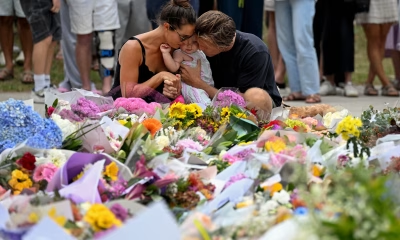Politics
Generation gap spells trouble for Tories
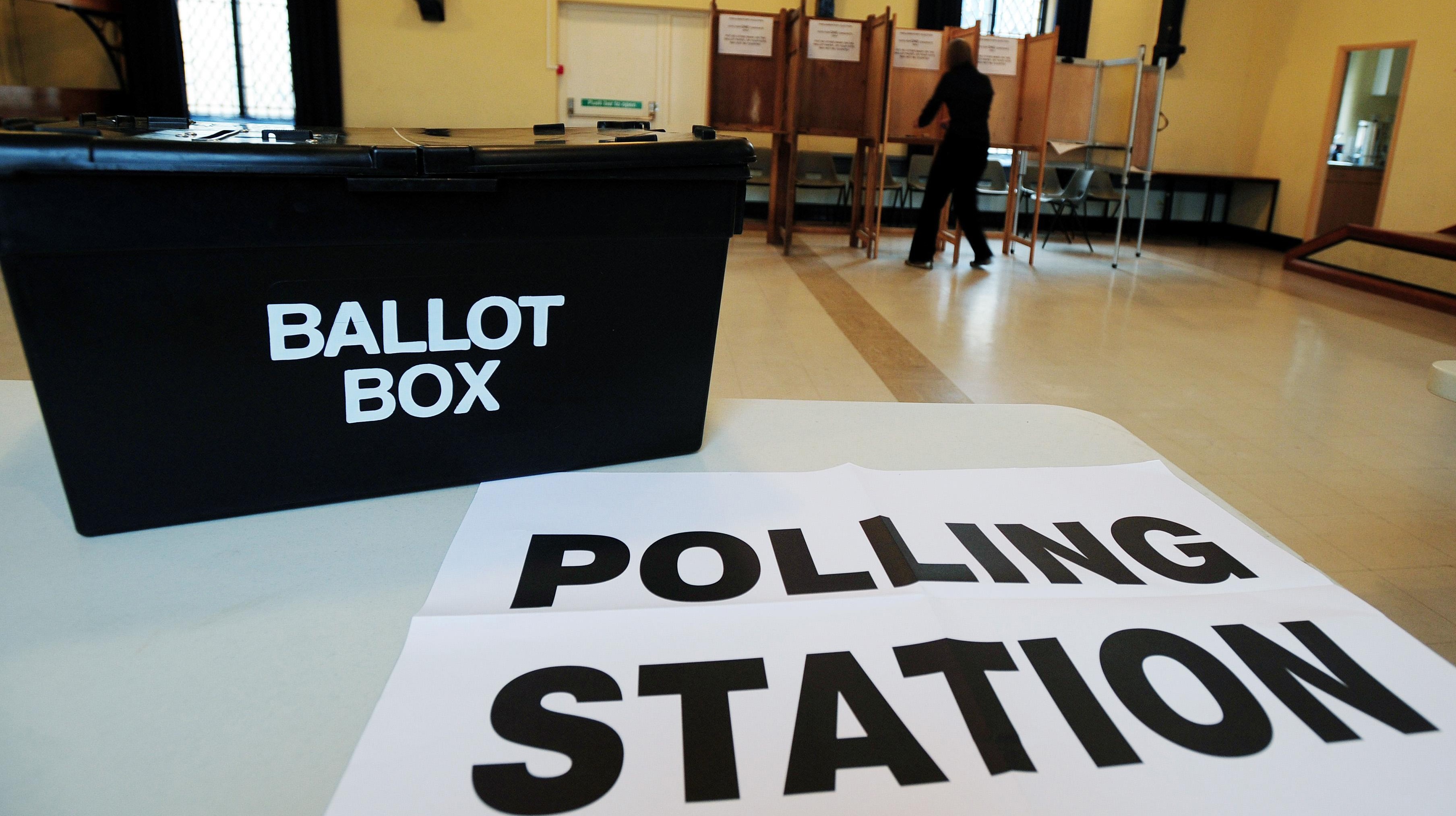
ON MONDAY, the Conservative think-tank Onward published a report into generational voting patterns, policy priorities and political values.
The report considers why age has become the key dividing line in British politics, what has happened since the last general election, and what can be done to win over millions of younger people deserting the centre-right in considerable numbers.
The report follows a detailed 10,000 sample poll, conducted by Hanbury Strategy. It is the largest study of the generation gap since age became the key political dividing line in British politics.
Younger and older voters have always been politically different, but never by this much
In 2017, the gap between younger and older voters was 50 points larger than the post-war average since 1945 and five times higher than in 2010. It started, in 2015 before Brexit and Jeremy Corbyn became the leader of the Labour Party. This gap has grown, not narrowed, since the last General Election.
In 2017, “the tipping point age” – the median age at which a voter is more likely to vote Conservative than Labour – was 47 years old. The report establishes that, since the election, “the tipping point” has risen by 4 years to 51 years old.
The Conservative age curve is getting steeper. Among 18–24-year-olds, 14% said they would vote Conservative if there was an election today. 62% said they would vote Labour. 9% of this group said they would vote for the Liberal Democrats.
Among those over 65 years old, the opposite was true, 56% of respondents said they would vote Conservative, against 24% for Labour. The only groups with a net positive vote for Conservatives are 55–64s and voters over the age of 65.
Projecting the results of the survey forward to 2022 shows that the Conservatives face a wipeout in Wales.
If age continues to be a predictor of vote intention, the Conservatives are also in trouble in London. For example, Putney, which has a majority of just 3.3%, has 2.6 younger people for every older person. Other Conservative seats potentially affected by the demographic shift include the Cities of London and Westminster, Hendon, Chelsea and Fulham, and Uxbridge and South Ruislip (currently held by would-be PM Boris Johnson).
According to Onward, the dissonance between different age groups largely down to the Conservatives’ failure to win over younger voters. 28% of under-35s would consider voting Conservative, but fewer than 17% say they would do so if an election were held today. Onward says that this amounts to 3 million voters young Conservative considerers which could be won over but currently would not vote for the party.
Polling among the younger age group suggests that on some policies, the Conservatives could be knocking on an open door. 18-24s are most in favour (63%) of keeping more of their own money and paying less tax. However, they also favour making the economy fairer, not just bigger. Nearly two-thirds of people favour “reducing the gap between rich and poor” over “working to create faster economic growth”, with 18-24s most in favour (67%).
On immigration, there is net support for reducing immigration in every age bracket, within every ethnic group, and among Remain voters.
In terms of priorities, the environment is the third top issue for 18-24-year-old voters and younger voters.
Notably, immigration is of far lesser importance to younger voters than older ones, a reverse of the position on welfare benefits, about which older voters are far less exercised. All age groups regard the NHS and Brexit as the top two priorities.
A disconcerting gap is rising in the Conservatives’ appeal to female voters. Only 8% of 18-24-year-old women would vote Conservative today, which correlates heavily with pessimism: 56% of women think the next generation will be worse off than their own. Meanwhile, Asian voters (42%) are nearly as likely to consider voting Conservative as White voters (44%), but only half as many would do so today.
Politics
Ajax armoured vehicle trial paused again as MP warns jobs must be protected
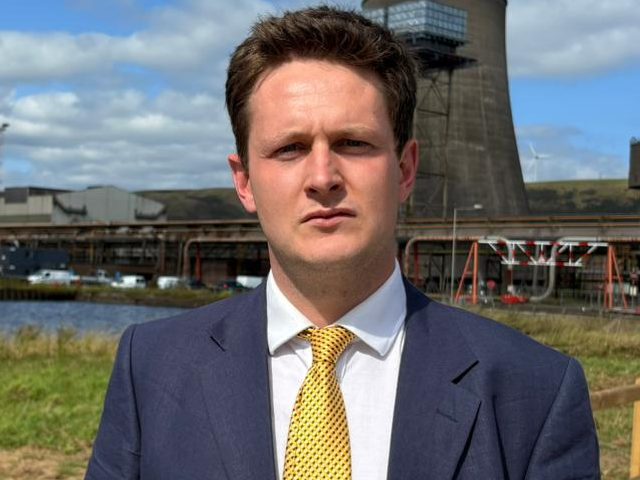
A FRESH pause to trials of the Ajax armoured vehicle programme has prompted renewed calls for workers’ jobs in Wales to be safeguarded.
The trial has been halted after another soldier reportedly fell ill during testing, adding to a series of delays and technical problems that have dogged the long-running Ministry of Defence project.
Welsh Liberal Democrat Westminster spokesperson David Chadwick MP said the repeated failures raised serious questions about accountability and cost.
He warned ministers must ensure taxpayers are not left footing the bill if the programme ultimately collapses, arguing that responsibility should rest with defence contractor General Dynamics.
“With the Ajax programme beset by repeated failures and significant delays, ministers need to confirm that taxpayers will not be left to bear the cost of these failures,” he said.
“If the project does end up being scrapped, the Government must ensure that the 400 workers currently employed on the programme in Merthyr Tydfil will receive full support.”
Mr Chadwick added that the Merthyr site should be prioritised for future defence and military development work if Ajax does not proceed, to protect skilled jobs and investment in the area.
The Ajax programme has faced years of scrutiny over safety concerns, excessive noise and vibration, and mounting delays, with the latest pause reigniting pressure on the Government to clarify the project’s future.
Health
‘Children spending more time in digital worlds than the real one’

CHILDREN are spending more time in digital worlds than the real one, the Senedd has heard, with excessive screen use shaping behaviour and health in ways society cannot ignore.
Labour’s John Griffiths expressed concerns about the impact of smartphones and online gaming on young people amid an “epidemic of screen use” in Wales.
Mr Griffiths titled the debate “Locked in, Bruh!” – “the state of playing a video game while oblivious to anything else” – on the suggestion of Tom, a teenager from Newport.
He raised research from the Centre for Social Justice, a thinktank, which estimates that up to 814,000 UK children aged three to five are already engaging with social media.
The Newport East Senedd Member told the chamber two-thirds of primary school pupils in Wales have their own smartphone by the age of 11.
Mr Griffiths said boys spend two hours more a day on online gaming while girls spend more time on social media and “reel scrolling” which has been linked to damaging self-esteem.
He told Senedd Members: “Boys are becoming more short-tempered and violent when exposed to violent video games and there is, rightly, much concern that children in more deprived families are particularly vulnerable.”
Mr Griffiths, who was first elected in 1999 and will stand down in 2026, said children aged five to 16 spend at least six hours a day looking at a screen. He added that for children, aged 11 to 14, that figure rises to nine hours a day.
He pointed to research showing more than 70% of young people in the UK do not undertake an hour of physical activity a day yet have at least six hours to spend looking at a screen.
He said: “Children are sat inside with a screen at the end of their nose and are not spending time outside enjoying their local communities or playing and interacting with friends.”
Mr Griffiths warned of increasing levels of obesity and rising numbers of young people reporting vision problems, with one in three children globally now short-sighted.
He told the Senedd: “As for the mental health and wider social impacts, anxiety and depression are increasingly linked to excessive screen use as is sleep disruption – with social media interfering with rest and emotional development.”
He raised a New Zealand study of more than 6,000 children that found a correlation between excessive screen time and below-average performance in literacy and numeracy. He warned children have increasingly shortened attention spans and an inability to concentrate.
Mr Griffiths shared the case of his constituent, Danielle, who said her son becomes more aggressive and snappier after a significant time gaming. Lucy, another constituent, explained how her children find the endless reels on social media addictive.
“Once they start scrolling, it’s hard to break that cycle,” the Senedd Member said. “And when she and her husband take the devices away, it often results in tantrums and tears.”
Mr Griffiths raised the example of countries such as Australia, France and Italy which have introduced strict age checks and bans on social media for under 16s.
He acknowledged such a policy would need to come from the UK Government because powers over internet services are not devolved. But he said Wales has the authority to introduce measures through education policy on, for example, smartphones in schools.
The Tories’ Sam Rowlands warned algorithms are having a “sickening” effect on teenagers who are eight times more likely to act on self-harm urges when exposed to such content. “TikTok users with eating disorders receive over 4,000% more toxic content,” he warned.
Responding to Wednesday’s (December 17) debate, Jane Hutt recognised how so-called doom scrolling can have a detrimental impact on young people.
Wales’ social justice secretary said: “We are living through profound change. Childhood today is shaped by technology in ways that were unimaginable a generation ago… For many young people, screens, smartphones and online gaming are part of everyday life.”

Community
Senedd unanimously backs sign language bill

PLANS to make Wales the best place in the UK for British Sign Language (BSL) users moved a significant step closer to becoming law with the Senedd’s unanimous support.
If ultimately passed, the BSL bill – introduced by the Conservatives’ Mark Isherwood – would end Wales’ status as the only UK nation without specific sign language protections.
Leading a debate on Wednesday December 17, Mr Isherwood said the Senedd supporting the bill’s general principles was a “huge step ahead” for the “vital” legislation.
Mr Isherwood, a disability rights campaigner for decades, explained his backbench bill would introduce legal requirements to promote and facilitate the use of BSL in Wales.
He said the bill, if passed, would be the most progressive piece of BSL legislation anywhere in the UK, recognising BSL is a language in its own right, not a communication support need.
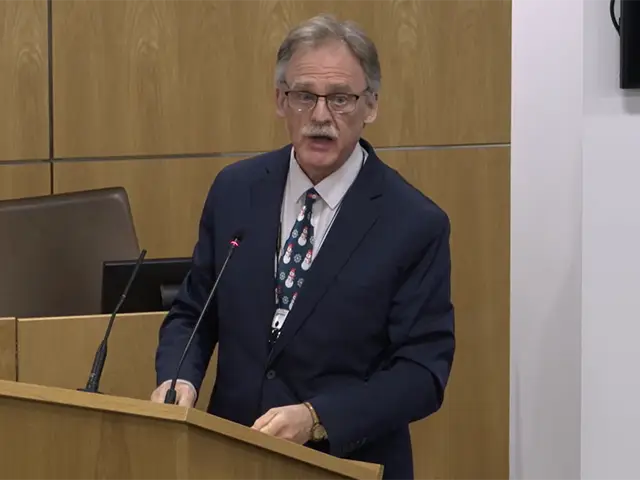
He highlighted that the bill would establish a BSL adviser role, the first statutory post of its kind in the UK, describing its importance as something that “cannot be overstated”.
Mr Isherwood, who chairs cross-party groups on disability and deaf issues, told the Senedd: “This isn’t just my bill. This is the bill of the BSL community. Let’s make this happen together and be proud of it together on behalf of deaf people across Wales.”
Jenny Rathbone, the Labour chair of the Senedd’s equality committee, was convinced of the “overdue” need for legislation to give more standing to British Sign Language.
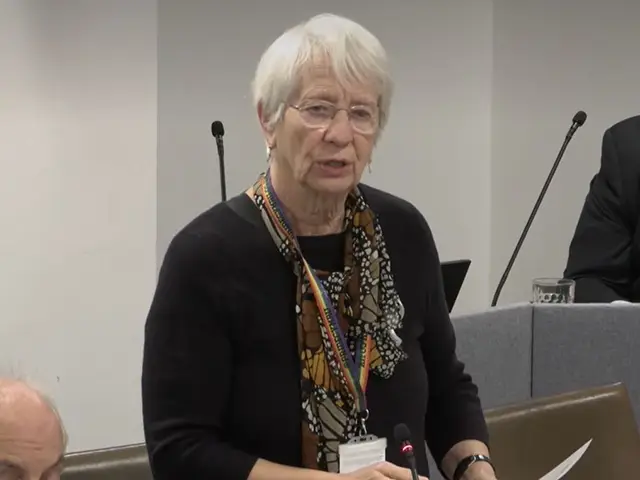
Ms Rathbone said the committee heard the biggest barrier “by some margin” was the availability of interpreters and the sustainability of the workforce.
She quoted a signer who told the committee: “The bill would make us feel respected and valued. But without proper funding, planning and deaf-led leadership, it won’t go far enough.”
Sioned Williams, Plaid Cymru’s shadow social justice secretary, told Senedd members: “Language is a part of our identity, our culture and our personal dignity.
“When someone cannot use their language, they are excluded from education, health care, employment and public life – and that is not acceptable in today’s Wales.”
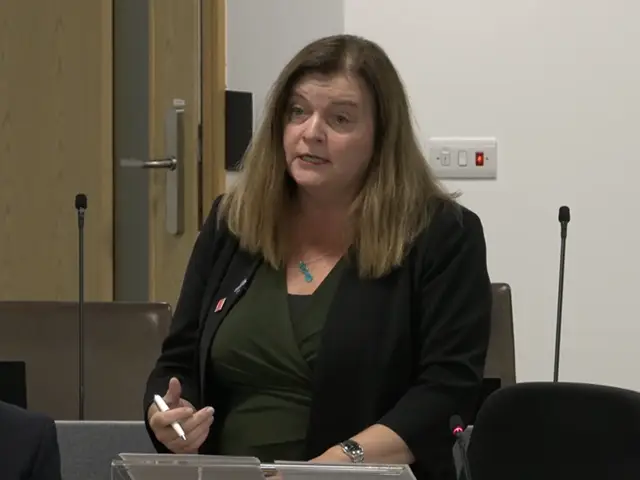
Ms Williams warned that if the legislation fails to deliver real change, the deaf community would be left “angry, disappointed and very, very disheartened”.
She expressed concern that the bill does not legally require the BSL adviser to be a deaf person, arguing it is “not appropriate, possible or efficient” for non-signers to lead the way.
Mr Isherwood defended the decision not to require that the adviser must be deaf, warning a successful legal challenge to a single such provision could cause the entire bill to fail.
Welsh Liberal Democrat leader Jane Dodds warned of an immediate workforce crisis, with only 54 registered sign language interpreters in Wales as of July.
With many now approaching the end of their working lives, she said: “We cannot – we must not – allow this bill to fail because we didn’t have the foresight to address this crisis now.”
Support for the bill stretched across the political spectrum, with Reform UK’s Laura Anne Jones similarly welcoming the “long-overdue” and “vital” legislation.
Jane Hutt, Wales’ social justice secretary, confirmed the Welsh Government’s financial backing, committing £214,300 for the bill’s first year of implementation in 2026/27.
If it clears the final hurdles, Mr Isherwood’s proposal will be the first backbench bill to enter the statute book in about a decade following the Nurse Staffing Levels (Wales) Act 2016.
-

 Crime24 hours ago
Crime24 hours agoMilford Haven man jailed after drunken attack on partner and police officers
-

 News4 days ago
News4 days agoDyfed-Powys Police launch major investigation after triple fatal crash
-

 Crime22 hours ago
Crime22 hours agoTeenager charged following rape allegation at Saundersfoot nightclub
-

 Crime3 days ago
Crime3 days agoMan sent to Crown Court over historic indecent assault allegations
-

 Crime2 days ago
Crime2 days agoMan charged with months of coercive control and assaults
-

 Crime5 days ago
Crime5 days agoMan spared jail after baseball bat incident in Milford Haven
-

 Crime3 days ago
Crime3 days agoMilford Haven man admits multiple offences after A477 incident
-

 Crime2 days ago
Crime2 days agoWoman ‘terrified in own home’ after ex breaches court order



















